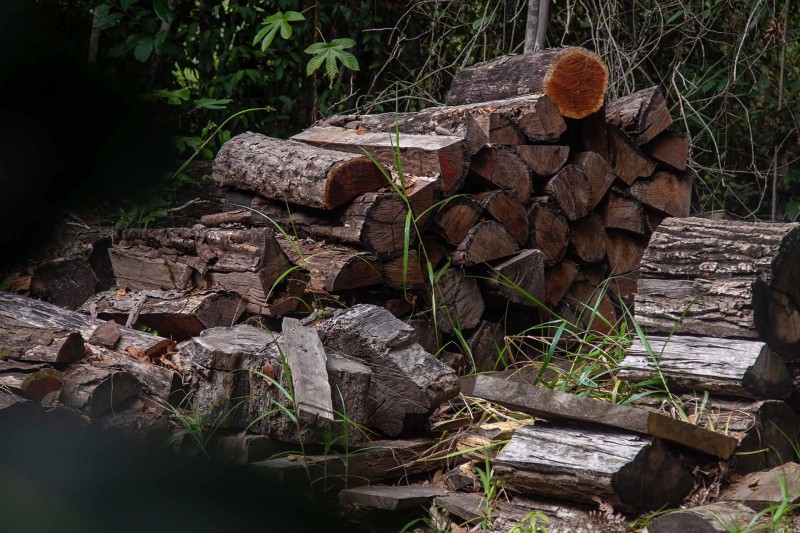At night, João can hear the revving of chainsaws echoing across the valley where he lives on Brazil’s Atlantic coast, the soundtrack to the destruction of some of the world’s last wild Brazilwood trees.
The noises come from the nearby Pau Brasil National Park, one of the few remaining fragments of the forest that once covered much of Brazil’s northern coastline. The reserve was created as a safe haven for Brazilwood — also known as Pau Brasil — and other native species, but illegal loggers regularly invade the forest under cover of darkness to cut down the endangered trees.
“In there it’s pure mafia,” João, whom OCCRP is referring to by a pseudonym for his safety, told a reporter from Brazilian magazine piauí. “There are the workhorses, the people who go there and work during the night. Then there is the middleman, who takes them to the buyer.”
Often, said João, the “workhorses” who invade the national park to cut down trees are his own neighbors. “I know people who steal wood,” he said, describing one recent encounter with illegal loggers in February.
That evening, as João was driving his motorcycle down one of the dirt roads that criss-cross the valley to his grandmother’s house, he stopped to greet a friend from the area and an unknown man he was with. As João was about to drive off, he heard the two men joking about the night’s work ahead.
“Today we will do good business,” João recalled one saying to the other. “We will leave the park loaded.”
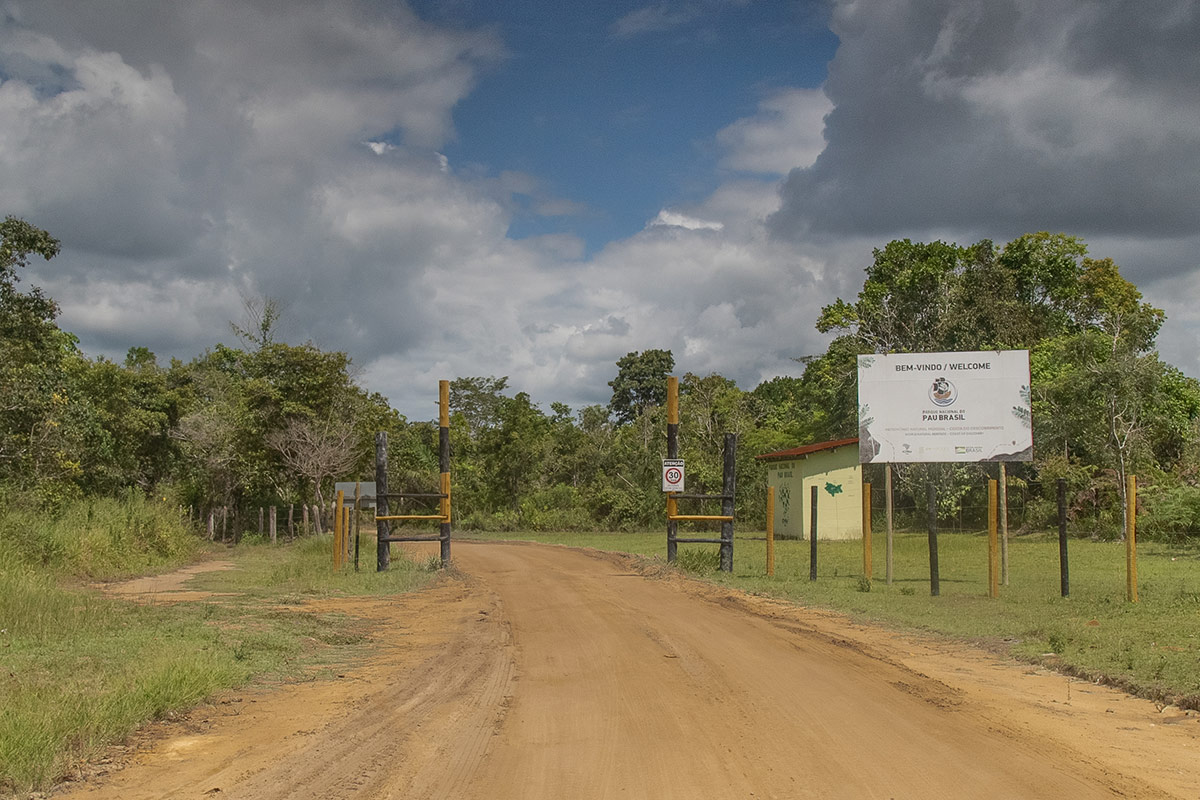 The entrance to the Pau Brasil National Park. (Photo: Joana Moncau)
The entrance to the Pau Brasil National Park. (Photo: Joana Moncau)
ICMBio, the agency responsible for policing the Pau Brasil National Park, told reporters it’s investigating reports of illegal logging in February.
Brazilwood is being driven to extinction by an industry not often associated with organized crime: classical music. Known for its density and strength, the wood is crafted into bows that are used to play stringed instruments such as violins and cellos around the world.
But as supplies of Brazilwood have dwindled, Brazil’s bow makers have turned to illicit sources.
Last year, piauí, Data Fixers, and OCCRP revealed that at least 33 bow makers have been investigated, fined, or had Brazilwood seized by Brazil’s environment enforcement agency over concerns about its origin since 2018. Reporters obtained forensic tests on samples of this confiscated wood that showed they were logged in Pau Brazil National Park.
Experts say the illicit Brazilwood trade can be more profitable than trafficking cocaine, while the penalties for getting caught are far less severe. Sticks of Brazilwood cost just a few dollars to buy in Brazil, but once crafted into bows they can sell for thousands of dollars apiece in the U.S., Europe, and Japan.
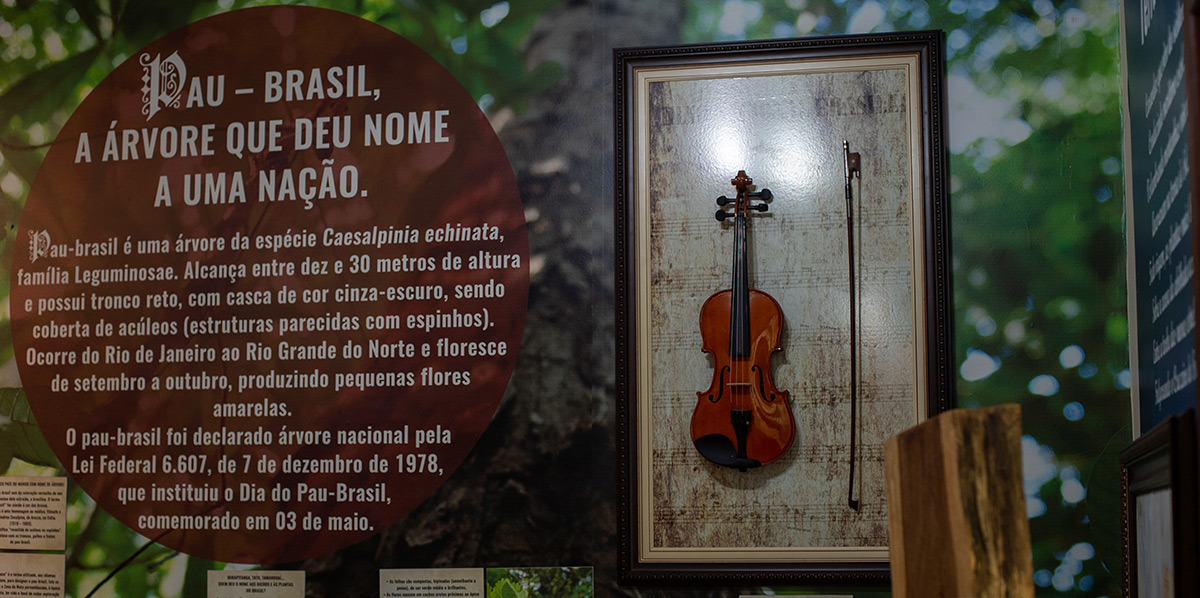 A panel tells the history of Brazilwood at the visitors’ center in the Pau Brasil National Park. (Photo: Joana Moncau)
A panel tells the history of Brazilwood at the visitors’ center in the Pau Brasil National Park. (Photo: Joana Moncau)
For people living near Pau Brazil National Park, the lure of such easy money is hard to resist. While the nearby coastal town of Porto Seguro is known for its luxury resorts and swanky bars, just a few kilometers inland, many local people live in poverty.
Fábio Faraco, who led the ICMBio between 2012 and 2019, said illegal loggers can earn $100 — more than a third of Brazil’s monthly minimum wage — for just one or two nights of work in the park.
"This whole illegal economic circuit is very profitable. These are people who see Brazilwood as an opportunity for easy money,” said Faraco.
Secret Trails
Pau Brazil National Park was created in 1999 to protect one of the patches of Atlantic Forest that still survive on Brazil’s northeast coast. Just over a decade later, the park was expanded to include part of the surrounding area, to the chagrin of local landowners.
The new boundaries swallowed several existing farms, which today stand empty, their gates padlocked. Some of these, it seems, have been co-opted by the Brazilwood smugglers.
Officers from ICMBio were investigating suspected illegal logging on one of these private farms, Linhares, in September 2021 when they found out that the property’s manager, Derivaldo Novais dos Santos, had been murdered.
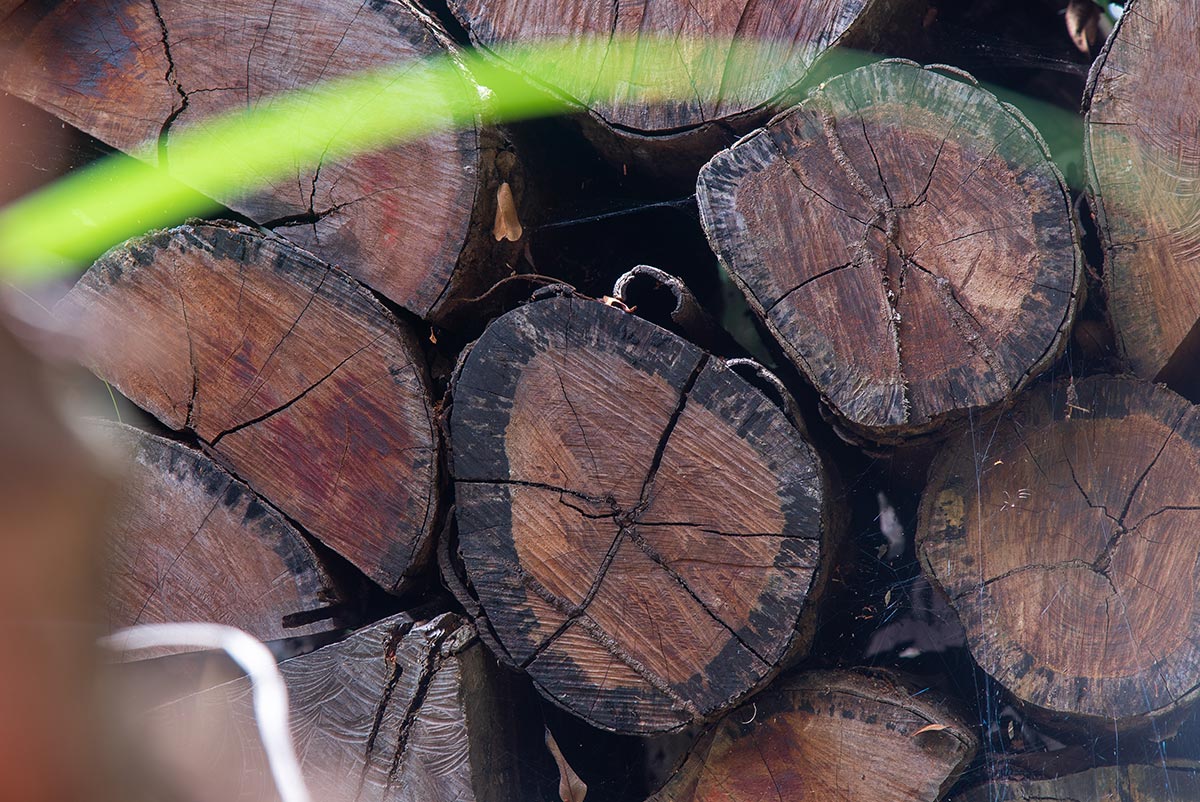 A close up of felled brazilwood in Pau Brasil National Park. (Photo: Joana Moncau)
A close up of felled brazilwood in Pau Brasil National Park. (Photo: Joana Moncau)
Inspectors had spoken to dos Santos on Linhares farm just six days earlier, but when they returned they were informed that he had been killed and his body dumped in a rural area of the neighboring district of Queimado.
ICMBio called in the police to investigate, but as yet no one has been charged. Police declined to comment because the case is ongoing.
When ICMBio officials searched the Linhares property where dos Santos worked, they found Brazilwood logs stashed inside, along with other types of wood used to make luxury decor.
Further inspections uncovered 26 trails that connected the farm to areas in the park where wood was being illegally cut down. Officers noted the paths had been planted with banana tree seedlings to hide them from view.
"We conclude, therefore, that there is intense extraction of wood from the interior of the Pau Brasil National Park,” they wrote in a report. “The extraction of Pau Brasil is also evident, this [species] destined to be made into bows."
Farm administrator João Carlos Rocha Júnior, who manages 15 properties around Pau Brasil National Park, including Linhares, denied his clients were involved in smuggling, saying their properties had been taken over by criminal networks in their absence.
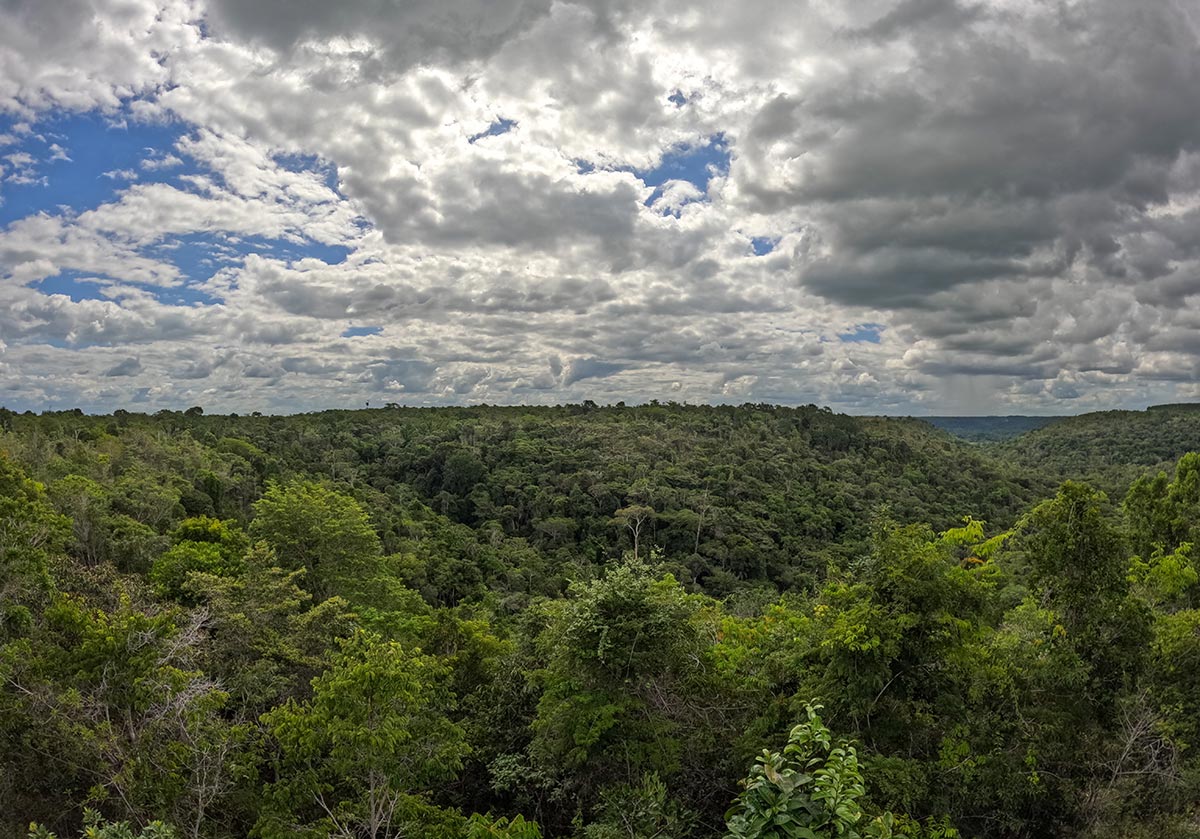 A view across Pau Brazil National Park. (Photo: Joana Moncau)
A view across Pau Brazil National Park. (Photo: Joana Moncau)
“One week, we see the gate is broken, then we fix it. The next week, someone writes a message saying to not lock the gate again, because they know who we are,” he said.
An internal report prepared by the managers of Pau Brazil National Park in 2016 — the year law enforcement first started clamping down on illegal logging in the reserve — identified three gangs that were behind the Brazilwood trade.
That July, military police arrested a former firefighter who was caught with 20 Brazilwood logs inside the park. In a statement to the local police, the man said the wood was meant to be exported to Italy and Portugal to make violin bows. (He was released a few months later.)
It’s unclear how many gangs still operate in the park today. João said he knew of two rival groups that carry out the illegal logging. “The situation there is ugly,” he said. “Bandits take people in there and tear [the trees] apart.”
Daniel Neves, president of Brazil’s National Association of Music Industry, said the trade needs to be better policed if the country’s bow making industry is to survive.
"The government needs to pay attention to illegality, as it has the power to ensure Brazil doesn't lose its status and the tradition of bow making,” he said.
This story was produced with the support of Internews/Earth Journalism Network.
